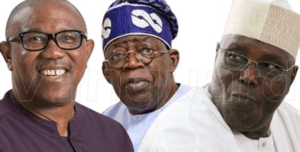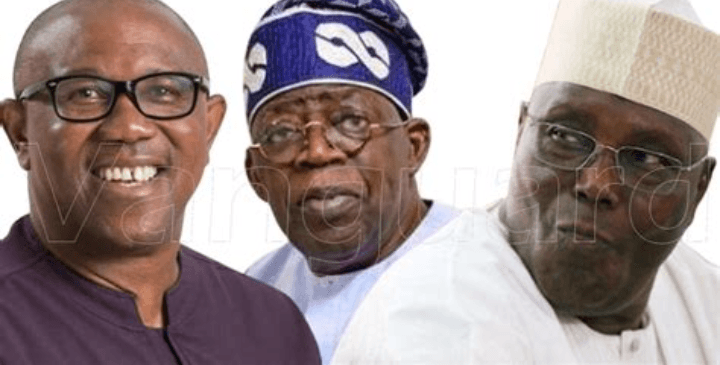2027: Bill to Stop Tinubu, Obi, Atiku Sparks Mixed Reactions
A New Bill, A New Controversy
A proposed amendment to Nigeria’s 1999 Constitution, seeking to bar individuals above 60 years from contesting for the presidency and governorship, has sparked intense debate across political and social circles. The bill, sponsored by Ikenga Ugochinyere, an Imo State lawmaker, recently passed its second reading in the House of Representatives.
If signed into law, this bill would disqualify key political figures like President Bola Tinubu, former Vice President Atiku Abubakar, and Labour Party’s Peter Obi from the 2027 elections. While the youth demographic welcomes the proposal as a step toward inclusivity, critics argue it is discriminatory and does not address Nigeria’s fundamental governance issues.
Breaking Down the Bill: Key Provisions
The bill seeks to amend Sections 131 and 177 of the Nigerian Constitution to introduce new educational and age requirements:
Presidential and governorship candidates must possess at least a bachelor’s degree.
No individual above 60 years shall be eligible to contest for the presidency or governorship.
These provisions build upon the 2018 Not Too Young To Run law, which reduced the minimum age for various elective offices but did not impose an upper age limit.
A Step Forward or a Step Back?
Supporters: Time for the Youth to Lead
Many young Nigerians believe the bill is long overdue. They argue that older politicians have dominated leadership for decades with little to show in terms of development, governance, and economic stability.
According to Terzulum Ukpanya, a former Labour Party candidate, Nigeria’s stagnation stems from a political elite more focused on personal gain than national progress. “The only thing they know is how to acquire wealth for their unborn grandchildren. They lack vision, and that’s why we keep recycling failed leadership,” he said.
Proponents point to global trends, citing leaders like France’s Emmanuel Macron, who assumed office at 39, as evidence that younger leadership can drive innovation and reform.
Opposition: Age is Not the Problem
Conversely, critics argue that the bill is a distraction from more pressing electoral reforms. Osita Okechukwu, a founding member of the All Progressives Congress (APC), dismissed the age limit as a non-issue. “The real problem is our flawed electoral system. Without a transparent electoral process, age limits won’t fix corruption or bad governance,” he asserted.

Okechukwu advocates for implementing the recommendations of the 2008 Uwais Report, which proposes independent electoral bodies and transparent nomination processes to ensure credible elections.
AAC’s Omoyele Sowore also denounced the bill, labeling it unconstitutional. “This is ageism. No form of discrimination based on age can stand in Nigerian law,” he remarked, predicting that the proposal will not pass.
The Bigger Picture: Electoral Reform vs. Age Limits
While the debate over age limits rages, governance experts stress that Nigeria’s challenges extend beyond generational politics. Weak institutions, lack of accountability, and electoral malpractice continue to hinder democratic progress.
If the bill progresses, it will face hurdles, including legislative scrutiny and presidential assent. Many believe it will be dead on arrival, as the political elite—many of whom would be disqualified—control the levers of power.
What’s Next?
As Nigeria inches toward 2027, the debate over youth inclusion in governance will persist. Whether through age limits or broader electoral reforms, the demand for political rejuvenation is louder than ever. The question remains: Will lawmakers champion real change, or will this bill be another footnote in Nigeria’s long history of political maneuvering?


